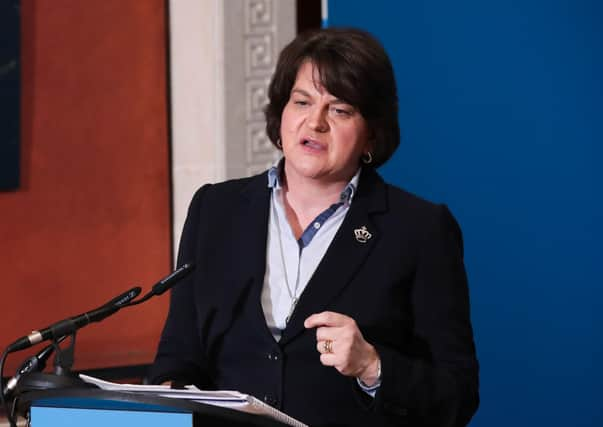Arlene Foster: Northern Ireland is at ‘tipping point’ over Covid-19


Mrs Foster insisted the executive was not “scaremongering” on the threat posed by a fresh wave of infections.
The DUP leader was responding to Assembly questions on the new localised restrictions imposed on Belfast and Ballymena and nearby postcodes.
Advertisement
Hide AdAdvertisement
Hide Ad“Let me say this to the Assembly and indeed anyone else listening – we are at a tipping point in relation to Covid-19,” she said.
“There are those who think that we are scaremongering about this issue and I just want to address that – we are not, we are not.
“We are in constant contact with our chief medical officer (Dr Michael McBride) and again today I am advised that the postcodes which we have particular concern about that concern is very much still there.
“And I do not want to see that spreading across Northern Ireland – we have to act to stop that spreading across Northern Ireland and actually stop people in those postcode areas from spreading Covid-19.”
Advertisement
Hide AdAdvertisement
Hide AdMrs Foster was challenged by SDLP Assembly Member Justin McNulty about briefings coming out of the Executive.
She told the Assembly: “Everybody should wise up.
“We are dealing with huge issues in the Executive.
“People should stop briefing against each other.
“We are supposed to be in a five-party coalition dealing with all of these issues and that is what I hope we do moving forward.”
Limits on social interaction between households amid soaring Covid-19 infection rates in the Belfast council area were agreed last week.
People living in Ballymena town and postcode areas BT43, BT28 and BT29 have also been given guidance discouraging non-essential journeys outside the affected zones.
Advertisement
Hide AdAdvertisement
Hide AdThere will also be new legally enforceable social restrictions – residents in these areas cannot visit other households.
There are a number of limited exceptions, including childcare provision and households that have formed a social bubble with another.
No more than six people, from no more than two households, are allowed to meet in private gardens.